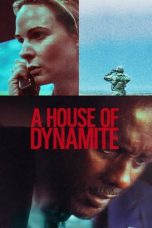Street Fighter: The Legend of Chun-Li (2009) Movie Review: A Disappointing Adaptation of a Classic Game
“Street Fighter: The Legend of Chun-Li,” directed by Andrzej Bartkowiak and released in 2009, is a live-action adaptation of the beloved video game franchise. The film attempts to focus on one of the series’ most iconic characters, Chun-Li, providing an origin story that blends martial arts action with a tale of revenge. Despite its efforts to pay homage to the game, the film falls short in many aspects, resulting in a disappointing experience for fans and general audiences alike.
Plot Overview
The movie centers on Chun-Li (Kristin Kreuk), who embarks on a journey from a privileged upbringing to a relentless quest for justice. As a child, Chun-Li witnesses the kidnapping of her father by the crime lord Bison (Neal McDonough). Years later, driven by the desire to find her father and take down Bison’s criminal empire, Chun-Li leaves her life as a concert pianist to train in martial arts under the guidance of Gen (Robin Shou), a wise martial arts master.
Along the way, Chun-Li allies with Interpol agent Charlie Nash (Chris Klein) and detective Maya Sunee (Moon Bloodgood) to uncover Bison’s plans and confront his enforcers, including the deadly Vega (Taboo). The film builds up to a climactic showdown between Chun-Li and Bison, aiming to deliver high-stakes action and emotional resolution.
Character Dynamics and Performances
Kristin Kreuk’s portrayal of Chun-Li is earnest but often lacks the depth and intensity required to bring the character fully to life. While Kreuk has moments of genuine emotion, her performance is hindered by a script that fails to provide a strong foundation for character development. Neal McDonough’s Bison is a far cry from the menacing figure in the games, with an over-the-top performance that borders on caricature.
Chris Klein’s portrayal of Charlie Nash has been widely criticized for its exaggerated and unconvincing delivery. His attempt to bring a tough-guy persona to the role comes off as forced and awkward. Robin Shou, known for his role as Liu Kang in the “Mortal Kombat” films, delivers a competent performance as Gen, providing some of the film’s more grounded and sincere moments.
Visual Style and Production Design
“Street Fighter: The Legend of Chun-Li” boasts some well-choreographed fight scenes, but the overall visual style and production design fail to capture the vibrant and dynamic essence of the game series. The film’s settings often appear generic and lack the distinctive flair that fans might expect from a “Street Fighter” adaptation. The action sequences, while occasionally engaging, suffer from inconsistent pacing and lack the creative choreography that could have elevated the film.
Themes and Adaptation
The movie attempts to explore themes of revenge, justice, and personal growth, but these themes are overshadowed by a disjointed narrative and underdeveloped characters. The film’s attempt to provide a gritty, realistic take on Chun-Li’s story feels disconnected from the larger-than-life spirit of the “Street Fighter” games. Fans of the franchise may find the adaptation lacking in fidelity to the source material, with many beloved characters either absent or significantly altered.
Reception and Legacy
“Street Fighter: The Legend of Chun-Li” was met with overwhelmingly negative reviews upon its release. Critics and audiences alike criticized the film for its weak script, poor performances, and lackluster action. The movie’s failure to capture the essence of the “Street Fighter” franchise has made it a cautionary tale in the realm of video game adaptations.
Despite its shortcomings, the film has gained a certain notoriety among fans and serves as an example of the challenges inherent in adapting video games to the big screen. Its lack of success has led to it being largely forgotten in the broader context of “Street Fighter” media.
Streaming and Purchase Options in America
For those interested in watching “Street Fighter: The Legend of Chun-Li,” the film is available on various streaming platforms. As of 2024, you can stream it on Amazon Prime Video and Hulu. It is also available for rental or purchase on platforms like Google Play Movies, YouTube, and iTunes. These options provide flexibility for viewers to choose the most convenient way to watch the film, whether through a subscription service or a one-time rental/purchase.
Conclusion
“Street Fighter: The Legend of Chun-Li” (2009) is a film that, despite its noble intentions, falls short of delivering a compelling and faithful adaptation of the beloved video game series. While it offers some moments of action and an earnest performance from Kristin Kreuk, the film’s overall execution leaves much to be desired. Fans of “Street Fighter” and general audiences alike may find the film lacking in the excitement and depth that have made the franchise a cultural phenomenon.
For those interested in exploring video game adaptations or simply looking for a martial arts action film, “Street Fighter: The Legend of Chun-Li” may offer some entertainment value. However, it ultimately stands as a reminder of the challenges and pitfalls of bringing iconic video game characters to life on the big screen. Whether you’re a longtime fan of the series or new to the world of “Street Fighter,” this film provides an opportunity to reflect on what makes a successful adaptation and the importance of staying true to the spirit of the source material.
















